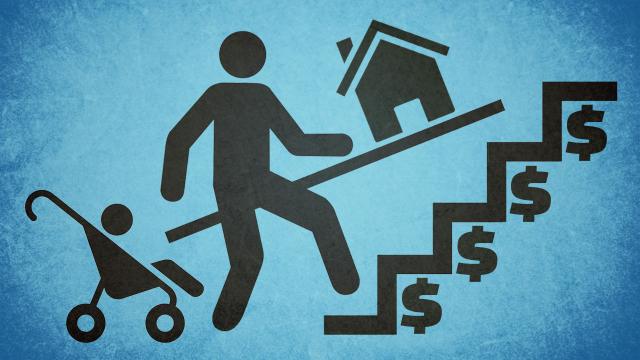There are a lot of benefits that go along with being a stay-at-home parent, but it can take a big toll on your finances, if you’re not careful. The more tuned in you are to where you’re at with your savings, spending and debt, the easier it is to make the transition. If you’re contemplating becoming a stay-at-home parent, here are some things you need to do, financially.
This post originally appeared on My Bank Tracker
Compare Income With Spending
The first thing new you should consider is how much you’re bringing in each month versus how much is going out. Earning big bucks doesn’t really help you out any if you’re not able to save anything because your expenses are eating up every penny you make.
When you’re running the numbers, make sure you’re looking at the bigger picture. Instead of just reviewing last month’s spending, go back over the previous year so you can see how your expenses and income have changed over time. If you notice that your spending has crept up in a particular category, take a look at why this happened, and decide if it’s something you can cut back on.
Revamp Your Budget
Becoming a stay-at-home parent means typically means making some serious budget changes. Even though you may be spending less on transportation each month since you’re not driving to the office anymore, you’re now having to factor in the cost of things like nappies and formula. Creating a rough draft of your post-baby budget can give you an idea of what you’ll actually be working with.
Giving the new budget a trial run before the baby comes is a good way to see if your plans are realistic. For example, if you’re planning to cut back on eating out and reallocate that money towards baby expenses, you could go ahead and start saving the extra cash now. If you want to take things a step further, you could try living on one income for a few months to see if it’s feasible, based on what you anticipate your budget will look like.
Adjust Your Savings Strategy
Building up a nice cushion of cash is a smart move for anyone, but it’s particularly important for new parents who are going to see their income take a dip. Having a little bit extra in the bank can ease some of the financial anxiety that can sometimes go along with being a stay-at-home parent.
It’s also wise to think about how expanding your family is going to impact your ability to save for long-term goals, like retirement.
Create A Backup Plan
There’s a certain amount of risk that goes along with becoming a stay-at-home parent but if you’ve got a Plan B in place it makes rolling with the punches a little easier. For instance, what would happen if the working spouse were to lose their job? How would the two of you handle things if the one who’s staying home decides to go back to work? Where would daycare costs fit into the picture? Discussing the different scenarios before they become a possibility puts you in a better position to deal with them should they actually happen.

Comments